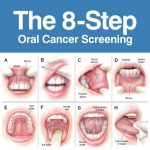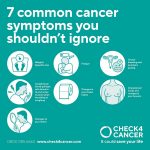Contents
ethacrynate sodium – injection, Edecrin
Medication Uses How To Use Side Effects Precautions Drug Interactions Overdose Notes Missed Dose Storage USES: Ethacrynate sodium is used to reduce extra fluid in the body (edema) caused by conditions such as congestive heart failure, liver disease, kidney disease, and cancer. Getting rid of extra water helps to reduce fluid in the lungs so that you can breathe easier. It also helps to decrease swelling of the arms, legs, and stomach/abdomen. This medication is known as a diuretic. It causes your body to get rid of extra water by increasing the amount of urine you make. This injectable form of ethacrynate sodium is used when a similar drug cannot be taken by mouth or when extra water must be removed quickly, especially in patients with severe medical conditions. HOW TO USE: This medication is given by injection into a vein by a health care professional. It should not be injected into a muscle or under the skin because pain and irritation at the injection site may occur. Dosage is based on your medical condition and response to treatment. If you use this drug too close to bedtime, you may need to wake up to urinate. Therefore, it is best to take this medication at least 4 hours before your bedtime. Consult your doctor or pharmacist if you have questions about your dosing schedule. Tell your doctor if your condition persists or worsens. SIDE EFFECTS: This medication is expected to increase urination. Blurred vision, dizziness, loss of appetite, stomach upset, headache, or weakness may occur. If any of these effects persist or worsen, tell your doctor or pharmacist promptly. Remember that your doctor has prescribed this medication because he or she has judged that the benefit to you is greater than the risk of side effects. Many people using this medication do not have serious side effects. This medication may lead to the loss of too much body water and minerals (including potassium), causing dehydration. Tell your doctor immediately if you have any of these unlikely but serious symptoms of dehydration or mineral loss: muscle cramps/weakness, confusion, severe dizziness, drowsiness, dry mouth/thirst, nausea/vomiting, fast/irregular heartbeat, decrease in urine, fainting, seizures. Tell your doctor right away if you have any serious side effects, including: easy bleeding/bruising, black/bloody stools, severe watery diarrhea, signs of infection (e.g., fever, sore throat), ringing in the ear, spinning sensation (vertigo), hearing loss, loss of consciousness, pain/redness/swelling of arms/legs, stomach/abdominal pain, dark urine, vomit that looks like coffee grounds, yellowing eyes/skin. Get medical help right away if any of these rare but very serious side effects occur: chest pain, weakness on one side of the body, slurred speech, vision changes. A very serious allergic reaction to this drug is rare. However, get medical help right away if you notice any symptoms of a serious allergic reaction, including: rash, itching/swelling (especially of the face/tongue/throat), severe dizziness, trouble breathing. This is not a complete list of possible side effects. If you notice other effects not listed above, contact your doctor or pharmacist. In the US – Call your doctor for medical advice about side effects. You may report side effects to FDA at 1-800-FDA-1088. In Canada – Call your doctor for medical advice about side effects. You may report side effects to Health Canada at 1-866-234-2345.
PRECAUTIONS: Before using ethacrynate sodium, tell your doctor or pharmacist if you are allergic to it; or if you have any other allergies. This product may contain inactive ingredients, which can cause allergic reactions or other problems. Talk to your pharmacist for more details. This medication should not be used if you have certain medical conditions. Before using this medicine, consult your doctor or pharmacist if you have: severe kidney disease (inability to make urine-anuria), severe watery diarrhea. Before using this medication, tell your doctor or pharmacist your medical history, especially of: kidney disease, liver disease, untreated mineral imbalance (e.g., sodium, potassium), gout. This drug may make you dizzy or drowsy or cause blurred vision. Do not drive, use machinery, or do any activity that requires alertness or clear vision until you are sure you can perform such activities safely. Limit alcoholic beverages. To reduce the risk of dizziness and lightheadedness, get up slowly when rising from a sitting or lying position. This drug can lower potassium/sodium levels in your blood. Your doctor may order you to increase your salt intake or eat foods high in potassium. Carefully follow the diet prescribed by your doctor. Do not change your salt intake without talking with your doctor first. Your doctor may prescribe a potassium supplement. Before having surgery, tell your doctor or dentist that you are taking this medication. If you have diabetes, this medication may infrequently make it harder to control your blood sugar. Monitor your blood sugar levels regularly and share the results with your doctor. Kidney function declines as you grow older. This medication is removed by the kidneys. Therefore, elderly people may be at greater risk for side effects while using this drug, especially dizziness and dehydration. During pregnancy, this medication should be used only when clearly needed. Discuss the risks and benefits with your doctor. It is unknown if this drug passes into breast milk. Consult your doctor before breast-feeding. DRUG INTERACTIONS: Drug interactions may change how your medications work or increase your risk for serious side effects. This document does not contain all possible drug interactions. Keep a list of all the products you use (including prescription/nonprescription drugs and herbal products) and share it with your doctor and pharmacist. Do not start, stop, or change the dosage of any medicines without your doctor’s approval. Some products that may interact with this drug include: cisapride, furosemide, digoxin, ginseng, medications for high blood pressure, lithium, nonsteroidal anti-inflammatory drugs (NSAIDs such as ibuprofen, indomethacin, naproxen), probenecid, drugs that can cause hearing or kidney problems (e.g., cisplatin), warfarin. Check the labels on all your medicines (e.g., cough-and-cold products, diet aids, nonsteroidal anti-inflammatory drugs-NSAIDs such as ibuprofen for pain/fever reduction) because they may contain ingredients that could increase your blood pressure or cause swelling (edema). Ask your pharmacist about using those products safely.
QUESTION
OVERDOSE: If overdose is suspected, contact a poison control center or emergency room immediately. US residents can call their local poison control center at 1-800-222-1222. Canada residents can call a provincial poison control center. NOTES: Dietary changes may increase the effectiveness of this medicine. Talk to your doctor or pharmacist about the dietary changes that might benefit you. Laboratory and/or medical tests (e.g., blood mineral levels such as potassium, kidney function tests) should be performed periodically to monitor your progress or check for side effects. Consult your doctor for more details. MISSED DOSE: For the best possible benefit, it is important to receive each scheduled dose of this medication as directed. If you miss a dose, contact your doctor or pharmacist immediately to establish a new dosing schedule. STORAGE: Not applicable. This medication is given in a clinic and will not be stored at home. Information last revised March 2013. Copyright(c) 2013 First Databank, Inc.
Related Disease Conditions
High Blood Pressure (Hypertension)
High blood pressure (hypertension) is a disease in which pressure within the arteries of the body is elevated. About 75 million people in the US have hypertension (1 in 3 adults), and only half of them are able to manage it. Many people do not know that they have high blood pressure because it often has no warning signs or symptoms. Systolic and diastolic are the two readings in which blood pressure is measured. The American College of Cardiology released new guidelines for high blood pressure in 2017. The guidelines now state that normal blood pressure is 120/80 mmHg. If either one of those numbers is higher, you have high blood pressure. The American Academy of Cardiology defines high blood pressure slightly differently. The AAC considers 130/80 mm Hg. or greater (either number) stage 1 hypertension. Stage 2 hypertension is considered 140/90 mm Hg. or greater. If you have high blood pressure you are at risk of developing life-threatening diseases like stroke and heart attack. REFERENCE: CDC. High Blood Pressure. Updated: Nov 13, 2017.


